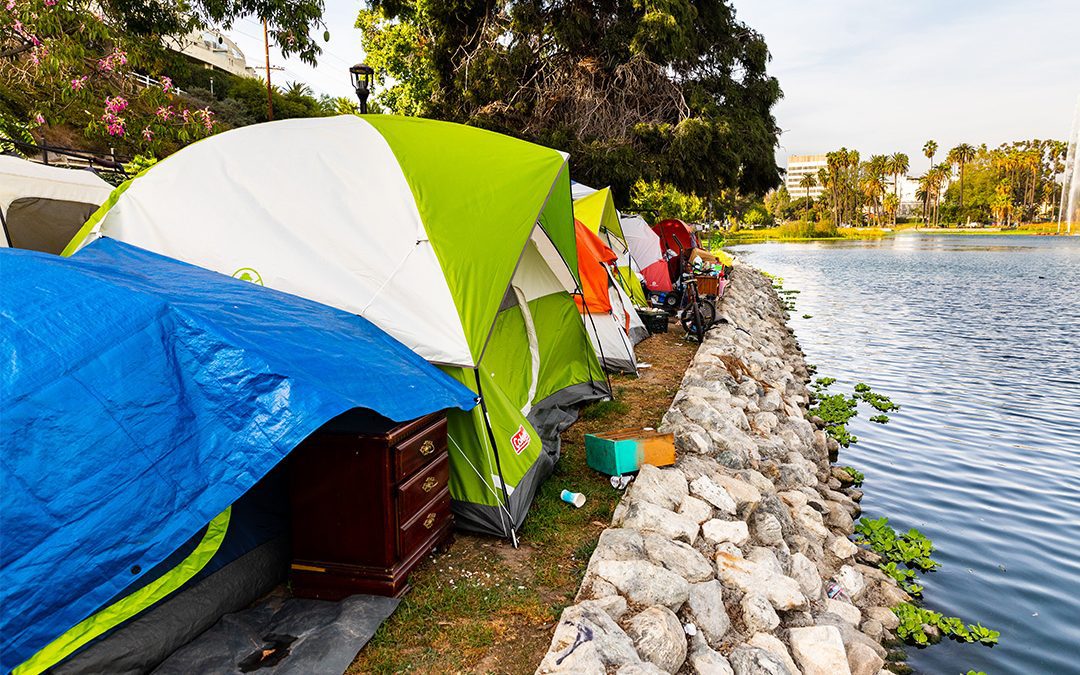With the recent 2023 homeless count by the Los Angeles Homeless Services Authority (LAHSA), our county continues to see an increase in homelessness year over year. Los Angeles County has one of the highest homeless populations in the United States, with over 75,000 people living on the streets or in shelters. Among those affected by homelessness are families with children. Ensuring Stability for Homeless Families in Los Angeles remains a critical issue that demands immediate and sustained efforts. In this blog post, we will explore the impact of homelessness on families in Los Angeles County, and the ways in which we can support and empower them to escape this vicious cycle that has become generational.
The Impact of Homelessness on Families in Los Angeles County
Homelessness can have profound and long-lasting effects on children and their families. Lack of stable housing can disrupt a child’s education, impact their health and development, and cause stress and trauma that can persist into adulthood. For families experiencing homelessness, finding safe and stable housing is often the first step in rebuilding their lives. However, the high cost of living and shortage of affordable housing in Los Angeles County can make this a difficult and lengthy process.

In addition, the Substance Abuse and Mental Health Services Administration SAMHSA reports that many homeless people have high rates of chronic and co-occurring health conditions, mental and substance use disorders. Individuals face severe trauma and unhoused children are at risk for emotional and behavioral problems.
Meeting the High Demand for Family Housing and Transformation
The Dream Center discovered this need and is filling it. In 2008, we launched our Transitional Housing for Families to meet the demand for families in need of housing. We did not stop there. The need continued to increase. In fact, recent data shows that homelessness has increased 70% since 2015. We rallied our biggest supporters to help us expand our capacity for families as our waiting lists never seemed to slow down. In 2021, we expanded our capacity for additional families to be housed. As of today, we are able to house up to 42 families with our goal to expand even more.

Since inception, our Transitional Housing Program for Families has adapted and evolved. Through our established recovery programs for single men and women, we knew housing was not the only answer to solve a long-term problem that has been perpetuated for decades. Families were going to need more support, love, empowerment to end their cycle of instability.
What we discovered is this:
- Allow families to process, adjust, and remove their survival-mode mechanisms. Some families take a little longer than others. It all really depends on how long they have been experiencing homelessness and what traumas they have experienced. Either way basic needs have to be the primary goal before the real healing can start.
- Parents need to re-learn relationship-building. Whether it is a single mother, single father or two-parent household, parents are used to making sure safety and basic needs are the primary goal. They haven’t had a chance to invest in relationships with their children or even learn social skills to build relationships with other adults.
- Healing is the first step for long-term stability for all families. Rebuilding looks different and is unique for each family.
- Empowering parents with resources and education will equip them to be fearless leaders for their households.
- Building a loving community for these families has lasting effects physically, mentally, and spiritually!
Community Support For Lasting Effects
Through our Transitional Housing Program for Families, we encourage families to participate in group activities, group meals, regular meetings with a mentor, and even volunteer opportunities to help them improve their confidence and collaboration within a community with a common goal. Another way to understand this: we provide a home-like setting where individuals can heal, grow, and thrive. And more critically, we acknowledge that we are serving individuals who have deep-rooted trauma. Unresolved trauma can have lasting negative effects, leaving more than simply physical and financial problems to be remedied.

In addition, we partner with Asian Pacific Health Care Venture and El Nido Family Centers, where families are able to receive counseling and therapy services for substance abuse, and family life education for youth and families. These collaborations are crucial to providing community support to help address the systemic issues that contribute to homelessness, such as lack of affordable housing and inadequate access to mental health care.
Finding Hope and Stability
Despite the challenges these homeless families face, there is hope for a brighter future. By working together, we have been able to house 37 families in the last year. Here are some wonderful words some families have shared with us.




If you are interested in supporting homeless families, there are a number of ways to get involved. You can donate funds, donate in-kind items, or volunteer. Please visit our website to find out more information about these opportunities: dreamcenter.org.
